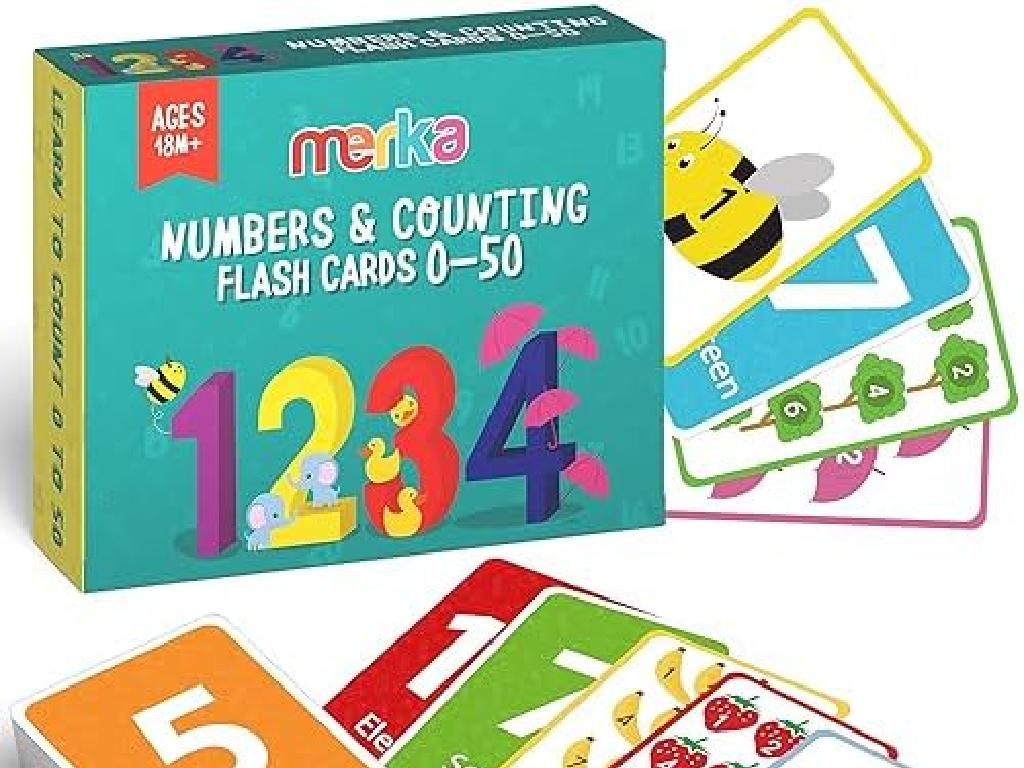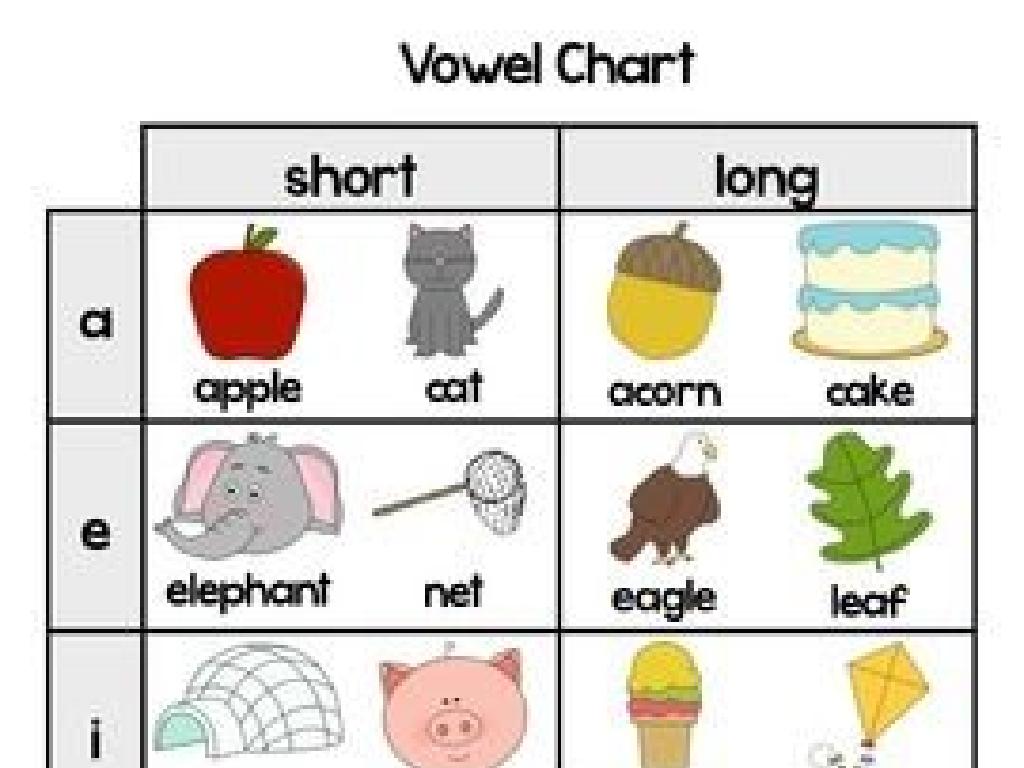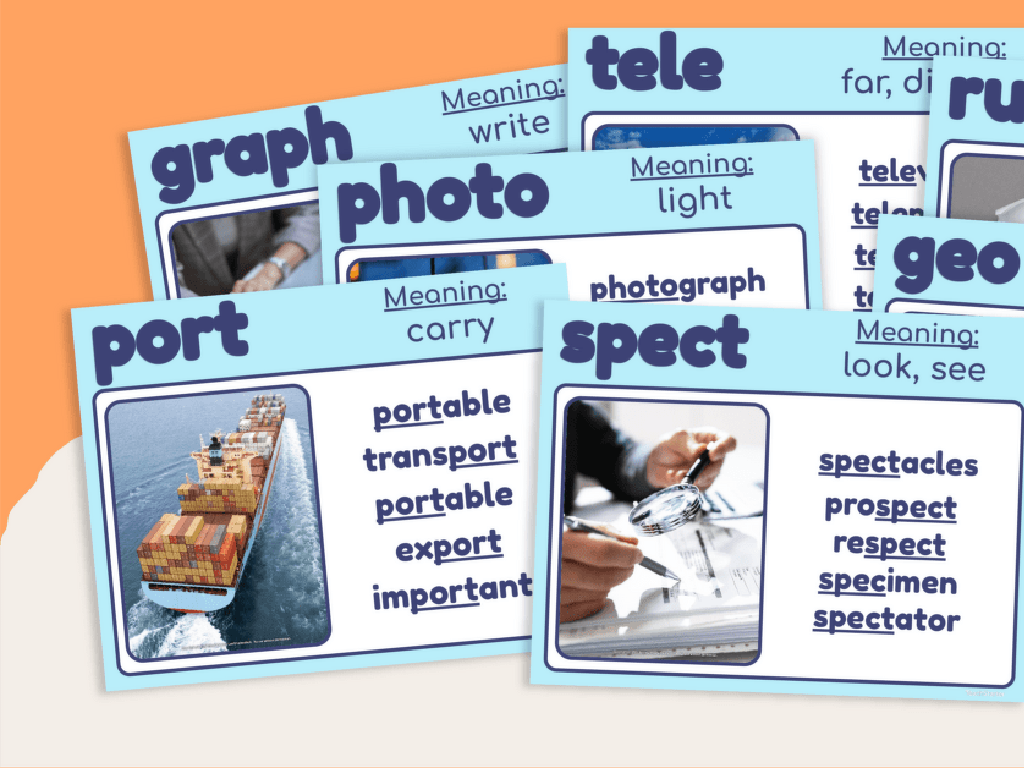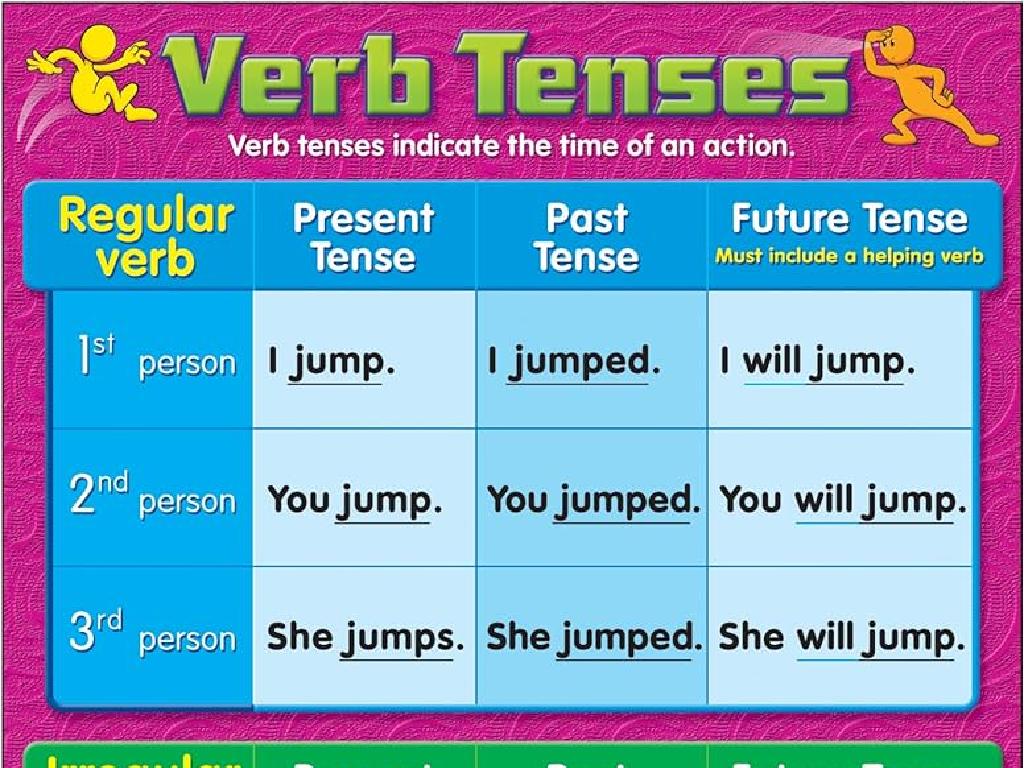Capitalizing Proper Adjectives, Nationalities, And Languages
Subject: Language arts
Grade: Third grade
Topic: Capitalization
Please LOG IN to download the presentation. Access is available to registered users only.
View More Content
Welcome to Capitalization!
– Greetings, young writers!
– What is capitalization?
– It’s using a big letter (capital) at the start of a word
– Capitalizing proper nouns
– Names of people, places, and things like ‘Sally’, ‘Paris’, or ‘Titanic’
– Why proper nouns need capitals
– It shows respect and helps us not to confuse with common nouns
|
Begin the class with a warm welcome and introduce the topic of capitalization, which is the use of uppercase letters at the beginning of words. Explain that capitalization helps us to identify specific names of people, places, and important things, which are called proper nouns. Emphasize that using capital letters for proper nouns is not just a rule but a sign of respect and clarity in writing. Provide examples of proper nouns and contrast them with common nouns that do not require capitalization. Encourage students to think of proper nouns they already know and use them in sentences to practice capitalization.
Capitalizing Proper Adjectives
– What are proper adjectives?
– Adjectives that are from proper nouns
– Origin of proper adjectives
– They come from names of places or people
– Examples: ‘Italian’, ‘Victorian’
– ‘Italian’ cuisine from ‘Italy’, ‘Victorian’ era from ‘Victoria’
– Capitalize proper adjectives
– Always start with a capital letter
|
This slide introduces the concept of proper adjectives to third-grade students. Begin by defining proper adjectives as adjectives that are derived from proper nouns and therefore must be capitalized. Explain that proper adjectives often describe something related to a specific place, person, or period, such as ‘Italian’ from ‘Italy’ or ‘Victorian’ from ‘Victoria’. Emphasize that, just like proper nouns, proper adjectives always start with a capital letter. Provide additional examples and encourage students to think of proper adjectives they already know. Use visual aids or props if possible to help students connect the proper nouns with their corresponding adjectives.
Capitalizing Nationalities
– Nationalities tell us origin
– If someone is from America, they are American
– Always capitalize nationality names
– Just like names of people, start with a big letter
– Examples: ‘American’, ‘Mexican’, ‘Canadian’
– ‘American’ not ‘american’, ‘Mexican’ not ‘mexican’
|
This slide introduces the concept of nationalities and their proper capitalization. Explain that nationalities are special words that tell us where people are from, like ‘American’ for someone from America. Emphasize that these words are always capitalized because they are proper adjectives – just like we always capitalize the names of people. Provide clear examples on the slide and encourage students to come up with more examples of nationalities. You can also have the students write sentences using capitalized nationalities to reinforce the lesson.
Capitalizing Languages
– Languages as communication
– Ways people talk to each other
– Capitalize language names
– Always use a big letter at the start
– Examples: ‘English’, ‘Spanish’, ‘French’
– ‘English’ not ‘english’, ‘Spanish’ not ‘spanish’
|
This slide introduces the concept of languages as a method of communication and emphasizes the rule that the names of languages should always be capitalized. Provide clear examples such as ‘English’, ‘Spanish’, and ‘French’ to illustrate this point. Explain that just like people’s names start with a big letter, so do the names of languages. Encourage students to always remember to use a capital letter when writing the name of a language. You can ask students to write down a few sentences using the names of languages they know, ensuring they capitalize them correctly. This will help reinforce the rule and allow for practice.
Let’s Practice Capitalization!
– Interactive capitalization activity
– Identify sentences needing capitals
– Correct the sentences together
– Explain the reasons for your choices
– Why do we capitalize ‘French’ in ‘French fries’?
|
This slide introduces an interactive class activity focused on capitalizing proper adjectives, nationalities, and languages. Prepare a worksheet with sentences that incorrectly use lowercase letters for proper adjectives, nationalities, and languages. Students will work individually or in small groups to identify and correct the sentences. Afterward, ask volunteers to share their corrections and explain why certain words needed to be capitalized, reinforcing the rules of capitalization. For example, ‘spanish paella’ should be corrected to ‘Spanish paella’ because ‘Spanish’ is a nationality. Provide guidance and positive feedback throughout the activity. Possible variations of the activity could include a capitalization scavenger hunt, correcting a short paragraph together on the board, or creating a capitalization craft with sentences that need fixing.
Capitalization Rules Recap
– Capitalize proper adjectives
– Proper adjectives like ‘American pizza’ always start with a capital letter.
– Capitalize nationalities and languages
– Words like ‘English’ or ‘Spanish’ describing where someone is from or the language they speak are capitalized.
– Review key points from today
– Any questions about capitalization?
|
This slide aims to summarize the capitalization rules for proper adjectives, nationalities, and languages. Emphasize that proper adjectives, which are derived from proper nouns, always start with a capital letter. Similarly, names of nationalities and languages are also capitalized because they are specific names. Review the key points from today’s lesson, ensuring that students understand the rules and can apply them in their writing. Finally, open the floor for any questions to clarify doubts and reinforce learning. Encourage students to provide examples and correct sentences that demonstrate their understanding of the rules.
Class Activity: Capitalization Hunt!
– Pair up for a capitalization scavenger hunt
– Find examples in books or articles
– Write down each capitalized word
– Share and discuss your findings
– Why is ‘American’ in ‘American food’ capitalized?
|
This interactive activity encourages students to work collaboratively to identify proper adjectives, nationalities, and languages in written materials. Provide a selection of books and articles for students to explore. As they find examples, they should note them down, focusing on words that are capitalized, such as ‘Mexican’ in ‘Mexican food’ or ‘English’ in ‘English language’. After the hunt, each pair will present their findings to the class and discuss why these words are capitalized, reinforcing the rule that proper adjectives, nationalities, and languages are always capitalized. This will help them understand the practical application of capitalization rules. Possible variations of the activity could include finding examples in magazines, creating posters with their findings, or even writing sentences using the words they found.
Capitalization Homework: Practice Makes Perfect!
– Complete the capitalization worksheet
– Find examples in books/TV shows
– Look for words describing people and places
– Remember to capitalize proper adjectives, nationalities, and languages
– Examples: ‘American’, ‘French’, ‘Spanish’
– Bring your completed worksheet to class
|
This homework assignment is designed to reinforce the day’s lesson on capitalization. Provide a worksheet with sentences that require students to identify and capitalize proper adjectives, nationalities, and languages. Encourage them to find additional examples in media they enjoy, like their favorite books or TV shows, to help them relate the lesson to the real world. Remind them to bring their completed worksheets to the next class for review. This will help you assess their understanding of the concept. In the next class, review the worksheets together and discuss the examples they found in their books or TV shows, highlighting the importance of capitalizing these specific categories.






